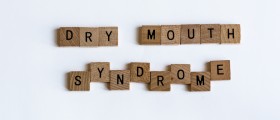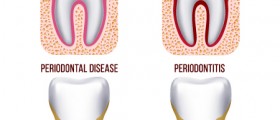Bad Breath and Its Causes
Bad breath is a problem that frequently affects many people. For some, it is a recurring problem, but most adults have problems with bad breath occasionally. Bad breath is not something most people worry about, but if it is persistent, it should be investigated so that its cause can be eliminated.
The most common cause of bad breath in adults is the anaerobic bacteria in the mouth, especially in the back of the mouth, caused by leftover food. They break down proteins and the byproduct of this process is an unpleasant smell.
Other possible causes may be tooth decay, gum disease, food stuck between teeth, dry mouth, excess bacteria on the tongue from postnasal drip, catarrh, throat or tonsil infections, and dry mouth.

It can also be an underlying health condition, like diabetes, kidney failure, or lung infection.
- Origin of halitosis in 90% of the patient is oral cavity; 9% of patient source of halitosis is non-oral reasons such as respiratory system, gastrointestinal system, or urinary system. In 1% of patients, the cause of the halitosis is diets or drugs.
- Halitosis is very common in general population and nearly more than 50% of the general population have halitosis. In a Swedish study of 840 men, halitosis assessment was only present in around 2% of the population. However, halitosis prevalence in a China study which involved more than 2500 participants was assessed above 27.5%. Also in the literature, the prevalence of halitosis reported as ranging from 5% to 75% of tested children.
- Nearly 8% of the halitosis cases caused from an extraoral source. This type halitosis has many sources, but it is rarely seen. Respiratory system problems, gastrointestinal disease, hepatic disease, hematological or endocrine system disorders and metabolic conditions can all be the causes of halitosis.
- People interact with each other every day, and halitosis has a negative effect on a person's social life. The person who has halitosis may not be aware of this situation, because this person may have developed tolerance or olfactory disturbance. Due to this cause, the patient generally cannot identify his/her halitosis and it is identified by his/her partner, family member, or friends. This condition causes a distressing effect on persons who have halitosis and so the affected person may avoid socializing.
- Halitosis can be treated if its etiology can be detected properly. Therefore, the most important issue for treatment of halitosis is detecting of etiology or determining of its source by detailed clinical examination. Although most of the cases are caused from oral cavity, sometimes other etiologies can contribute oral halitosis. If it is not detected of the etiology accurately, the treatment can be unsuccessful therefore investigation and adequate diagnosis are crucial.
What Makes Bad Breath Worse
Certain foods, like garlic and onions, can bake bad breath even worse. Contrary to what many people believe, the smell of garlic and onions cannot be eliminated by brushing or using mouthwash. This is because the pungent oils in these foods are absorbed during digestion into the bloodstream, from where they are carried to the lungs and the smell is evident when a person exhales.
Food digestion can also worsen bad breath. Digestion problems and constipation make it worse.
Of course, inadequate brushing and flossing greatly contribute to bad breath. When the teeth are not cleaned properly, food is left stuck on and between the teeth, causing a foul odor.
People who have problems with dry mouth often have bad breath. This is because saliva washes out the remains of food, debris, and bacteria and cleans the mouth. The lack of saliva leads to bad breath for this reason.
Smoking also contributes to bad breath because the residues of chemicals and of the smoke itself can linger in the mouth and lungs.
Myths About Eliminating Bad Breath
When people have bad breath, they automatically think of using mouthwash. This is not an effective way to eliminate bad breath because mouthwash only temporarily masks the smell, which comes back once the effect of mouthwash is over.
Brushing the teeth may be an efficient remedy for bad breath if it is caused by food residues in the mouth. If there is another cause, brushing simply will not help.
Gums and mints also have a temporary effect. They may even worsen the problem, especially if they contain sugar because bacteria feed on them.
For effective and complete treatment of bad breath, it is essential to first identify its cause and address it. Once the cause is gone, bad breath goes away too.

















Your thoughts on this
Loading...